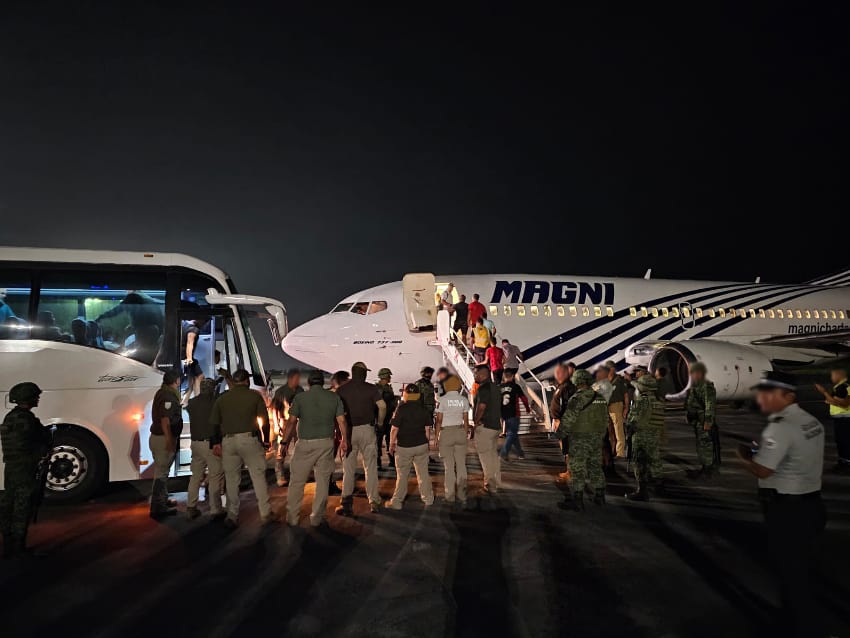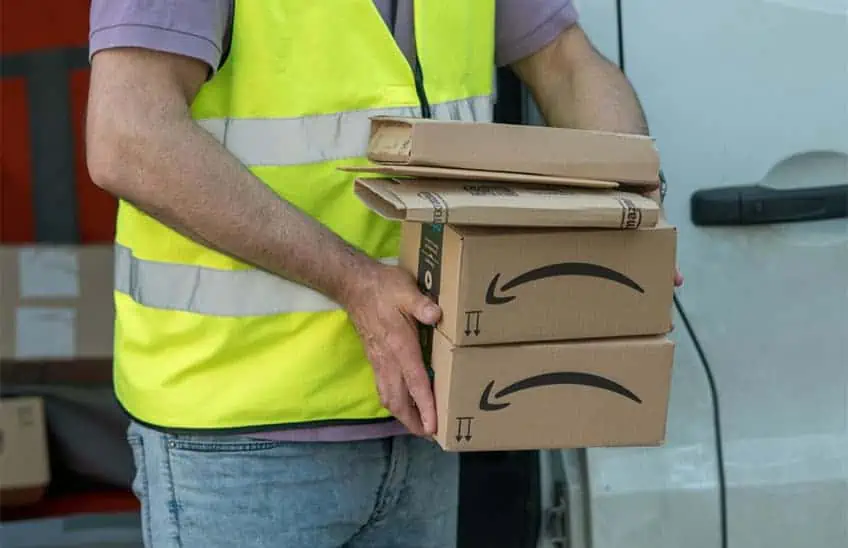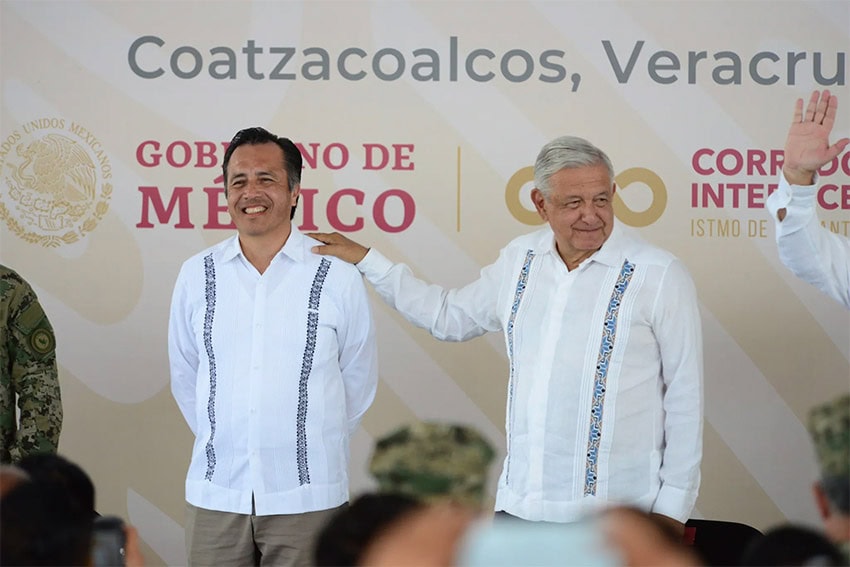Possible mass deportations of immigrants living in the United States and tariffs implemented by the Mexican government this week were among the topics President Claudia Sheinbaum spoke about at her Friday morning press conference.
She also announced that a former governor would take over the leadership of one of Mexico’s energy agencies.
Mexico could receive non-Mexican deportees, Sheinbaum says
Sheinbaum reiterated that Mexico “is not in favor” of the mass deportations United States President-elect Donald Trump has pledged to undertake during his second stint in the White House.
“But if they happen … we’re going to receive the Mexicans that arrive in our country, and we’re going to ask the United States to, as far as is possible, send migrants who aren’t from Mexico to their countries of origin. And if they can’t, we could collaborate through different mechanisms,” she said.
Sheinbaum said last month that Mexico has an agreement with the Biden administration under which the United States sends deportees “of many nationalities” on direct flights to their countries of origin. She said that her government hoped to reach a deal with the incoming Trump administration so that most non-Mexican deportees continue to be sent to their countries of origin.
If Mexico were to agree to receive non-Mexican deportees, the federal government could limit acceptance “to certain nationalities or request compensation from the U.S. to move the deportees from Mexico to their home countries,” The Associated Press reported.

AP noted that “Mexico, like any other country, is not obligated to accept non-Mexican migrants, but it has agreed to do so in the recent past, especially from countries like Cuba and Venezuela.”
Those countries, the news agency added, “often refuse deportation flights from the United States, but may accept them from Mexico.”
Sheinbaum said Friday “there will be a time to speak with the United States government if these [proposed] deportations really happen.”
“But we will receive … [deportees] here and we will receive them properly. We have a plan that I said yesterday we would present in due course,” she said.
Sheinbaum explains objective of new tariffs
Asked about the new tariffs on products imported via e-commerce sites, Sheinbaum said they are aimed at individuals or companies purchasing large quantities of goods to sell in Mexico.
“There are these [online] platforms where one can request any product. One thing is the individual arrival [to Mexico] of one piece, but what we detected is that in reality [the e-commerce sites] were being used to bring [products into Mexico] and then sell them in Mexico,” she said.
“And that requires the payment of taxes,” Sheinbaum said, apparently also referring to a new rule requiring foreign e-commerce sites to pay Mexico’s value-added tax.

“One person, an individual, requesting a piece is not the same thing as [many] pieces being brought in to be sold, right?” Sheinbaum added.
She said that many Mexican small businesses have closed down due to reasons that include the entry of products from countries with which Mexico doesn’t have trade agreements, such as China. Some of those products enter Mexico to be sold “widely” after they were purchased on e-commerce sites (such as Temu and Shein), Sheinbaum said.
Disincentivizing that practice is the objective of the new tariffs, she said.
Former Veracruz governor joins federal government
Sheinbaum announced that former Veracruz Governor Cuitláhuac García will take on the role of director of the National Center for Natural Gas Control (Cenagas).
García, who completed his six-year term as governor of Veracruz last November, will start in the position next Monday, the president said.
“Few people know that Cuitláhuac is a mechanical and electrical engineer who studied at the Veracruzana University. He’s a very good engineer,” Sheinbaum said.

“He was studying his doctorate abroad and in 2006, if I’m not mistaken, or 2012, he took the decision to leave the doctorate to come to fight for the transformation of Mexico,” she said of the former Morena party governor.
Sheinbaum described García as an “honest” man “with a lot of technical knowledge” about energy.
“He will help us coordinate all the work at Cenagas related to the production, use and distribution of natural gas,” she said.
By Mexico News Daily chief staff writer Peter Davies (peter.davies@mexiconewsdaily.com)
